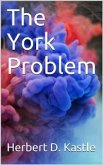Tono-Bungay is a realist semiautobiographical novel written by H. G. Wells and published in 1909. It has been called "arguably his most artistic book". It was originally serialized in The English Review beginning in the magazine's first issue in December 1908. It was serialized in the United States in The Popular Magazine beginning in the September 1908 issue. Tono-Bungay is narrated by George Ponderevo, who is persuaded to help develop the business of selling Tono-Bungay, a patent medicine created by his ambitious uncle Edward. George devotes seven years to organising the production and manufacture of a product which he believes to be "a damned swindle". He then quits day-to-day involvement with the enterprise in favour of aeronautics. But he remains associated with his uncle Edward, who becomes a financier of the first order and is on the verge of achieving social as well as economic dominance when his business empire collapses. George tries to rescue his uncle's failing finances by stealing quantities of a radioactive compound called "quap" from an island off the coast of West Africa, but the expedition is unsuccessful. His nephew engineers his uncle's escape from England in an experimental aircraft he has built, but the ruined entrepreneur turned financier catches pneumonia on the flight and dies in a French village near Bordeaux, despite George's efforts to save him. The novel ends with George finding a new occupation: designing destroyers for the highest bidder.
Bitte wählen Sie Ihr Anliegen aus.
Rechnungen
Retourenschein anfordern
Bestellstatus
Storno









